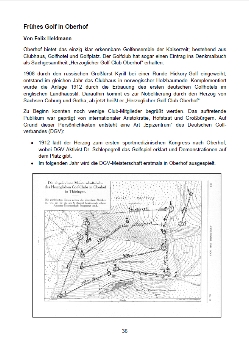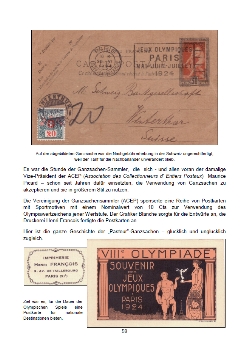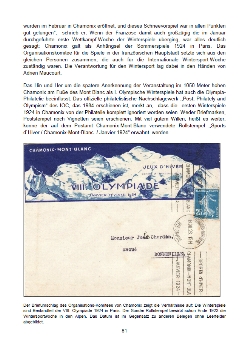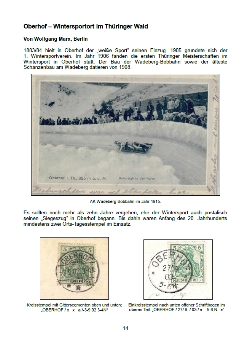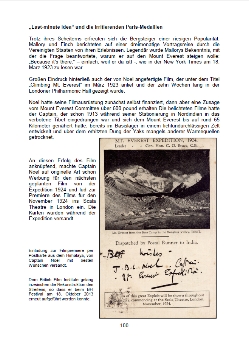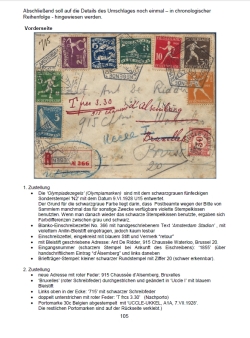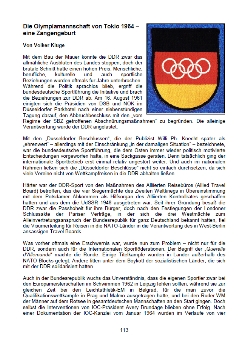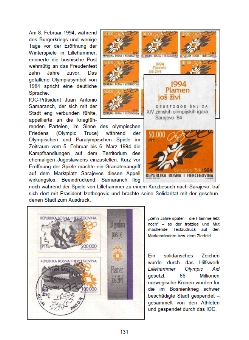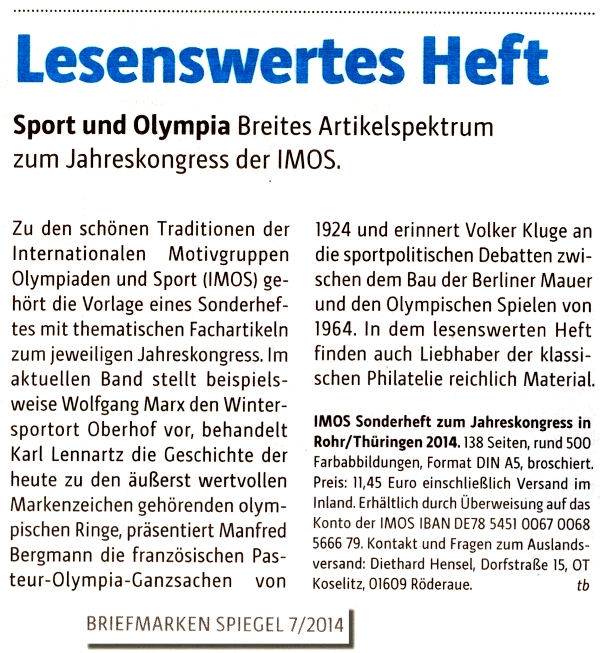 Unser neues Sonderheft wurde anlässlich des IMOS-Kongresses in Rohr aufgelegt.
Unser neues Sonderheft wurde anlässlich des IMOS-Kongresses in Rohr aufgelegt.

Inhaltsverzeichnis
Grußwort des Landrats des Kreies Schmalkalden-Meiningen,
Herrn Peter Heimrich
Unsere Gastgeberregion
Aus der Chronik des Meininger Briefmarkensammlervereins e. V. / Günther Wölfing
Oberhof – Wintersportort im Thüringer Wald / Wolfgang Marx
Frühes Golf in Oberhof / Felix Heldmann
Zur Geschichte der Sport- und Olympiaphilatelie
Vom Olympischen Erkennungszeichen zum kostbaren Wirtschaftsfaktor / Karl Lennartz
90. Geburtstag der ersten olympischen illustrierten Ganzsachen:
die „Pasteur-Olympia-Ganzsachen“ von 1924 / Manfred Bergman
Das Schneevorspiel von Chamonix / Rüdiger Fritz
Der olympische Alpinismus-Preis und ein eingelöstes Versprechen / Volker Kluge und Thomas Lippert
Amsterdam 1928:
Der lange Weg eines Einschreibbriefs aus dem Olympia-Stadion nach Brüssel / Laurentz Jonker
Siegermedaillen Olympischer Winterspiele / Armin Haug
Die Olympiamannschaft von 1964 – eine Zangengeburt / Volker Kluge
Vučko, der Wolf – freudig, traurig, hoffnungsvoll / Thomas Lippert
About this special booklet, published for our annual meeting in Rohr/Thuringian Forest
In the first part the articles in this booklet report about the philatelic and sportive background of the region and especially of the village Oberhof, well-known for its sports grounds and training facilities, place of world cup events in luge, biathlon and cross-country.
The Olympic and sports history is considered by basic contributions – connected with selected jubilees and anniversaries.
The Olympic rings have been introduced by Pierre de Coubertin in 1914, six years before they have been shown for the first time during Olympic Games in 1920 in Antwerp. Karl Lennartz presents a deep look into the sources and describes the story from the sign of the Olympic movement to a worthy trade mark nowadays.
90 years before the Olympic games of Paris were celebrated. Manfred Bergman presents one of the less known philatelic stories of those Games, the so-called Pasteur Olympic stationeries created by Mr. Picard. The result of this very interesting research work is accompanied by the investigations of Rüdiger Fritz. He dealt with the story of the Winter Sports week in Chamonix, which two years later have been declared as the 1st Olympic Winter games. After the parade of Pasteur Olympic stationeries we now can enjoy a parade of Chamonix machine cancellations. Finally, at the Chamonix 1924 closing ceremony a promise has been given: to bring the Olympic gold medal, the Olympic Alpinism Prize, to the summit of the Mt. Everest. This has been fulfilled in the framework of the Olympic Games 2012 in London. Volker Kluge and Thomas Lippert tell about the background of this alpinism prize and how the circle has been closed in 2012.
Laurentz Jonker discovered an exciting cover from the Amsterdam Olympic Stadium in 1928 and follows its way to Brussels. The postmen had some problems to find the addressee, but finally succeed.
In 1964, 50 years ago, the common German Olympic team, formed by the best sportsmen from East and West Germany, appeared in Tokyo for the last time. The IOC described the selection process of the decision makers, who the best sportsmen are, as “querelles allemands”. Volker Kluge reports about this difficult time, when sports issues became part of the cold war.
Back to the winter sports, Armin Haug, specialized in numismatics, brings some glamour into the booklet and presents the Medals of the Olympic Winter Games.
In the framework of our annual congress the collector friends from the city of Meiningen organized a philatelic exhibition “Wintersports”. It will be a pleasure to meet with the Olympic champions from 1984 in bobsleigh, Wolfgang Hoppe und Dietmar Schauer-hammer. This is also a reason to have a look back at SARAJEVO 1984, the positive one of the three historical events for which Sarajevo is known. Thomas Lippert writes about the civil war, too, and the hopes, that sports events could contribute to the normalization of life in the maltreated town.

